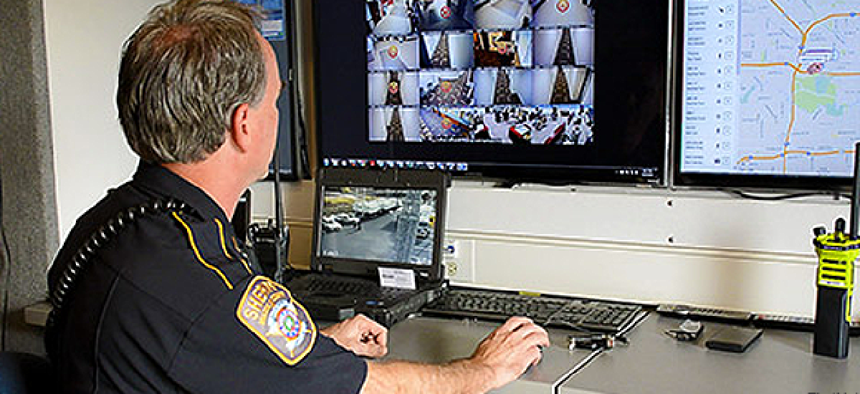Local law enforcement agencies sign on to FirstNet

The sheriff’s office in Brazos County, Texas, subscribed to the public safety broadband network after participating of one of FirstNet's Early Builder projects.
On Jan. 25, the Brazos County, Texas, Sheriff’s Office became the second public-safety agency to subscribe to FirstNet, following on a move by the Kansas Highway Patrol (KHP), which made its announcement on Jan. 24.
The decision was an easy one, said Brazos County Sheriff Chris Kirk, because the office has already seen benefits from FirstNet, a nationwide public-safety broadband network that the First Responder Network Authority and AT&T are working to build. The office has been operational for two years on a network test node in Harris County, which is about 90 miles northwest of Brazos and one of FirstNet’s five Early Builder projects.
“We have 61 patrol units that are equipped in a manner that they do all their work off the FirstNet system," Kirk said. "All the data for connecting to dispatch, all the tablets, the tough tablets in all the patrol cars, work off that system," he said. “Certainly one of the best parts of being on that system is the connectivity.”
All the units have mobile video cameras that can livestream to other users. “I can sit in my office or in the command center and pull up any one of those cameras and livestream, which is incredible technology for us,” Kirk said.
For example, as deputies handled a swift-water rescue after flooding followed a tornado, the command center team was able to watch what was happening. Similarly, during an armed standoff, officers parked four cars around the house and turned on their mobile cameras so they could livestream video to the command center, which was monitoring “the tactical development of that without having to get reports back from the field via phone or radio,” Kirk said.
Overall, “we’re not using our radios as much as we used to. Dispatch will call a deputy and say, ‘Hey, we’re taking a call. Watch your screen,’” he said. “The deputies are seeing it live, so they can get an early start on going to what the call is. There doesn’t have to be a lot of radio calling back and forth as to what happened.”
What’s more, officers can pull up mapping capabilities, search the county’s records management system and write and submit reports from their patrol cars. Before, they would have had to call a dispatcher for search results or returned to headquarters to file reports. “Deputies don’t have to come to the office. They can sit in the patrol car and do their job,” Kirk said.
The county has also tested the network’s viability when bandwidth usage spikes. At football games at the county’s Texas A&M University, 160,000 fans and another 70,000 tailgaters converge on Kyle Field. “That’s a lot of bandwidth being eaten up, but it doesn’t affect this system,” he said.
Created to address clogged and incompatible communications after the 9/11 terrorist attacks, FirstNet has gotten plenty of criticism in recent years, particularly for its price tag -- which ranges from $12 billion to $47 billion -- and slow progress.
In its announcement, KHP called FirstNet a “cutting-edge public safety broadband network.”
“FirstNet is truly transformational,” KHP Col. Mark Bruce said in a statement. “We’re just beginning to unleash its potential, but we believe it’s a promising solution that will help us do our jobs better and faster -- while staying safer.”
Like the Brazos County Sheriff’s Department, KHP based its decision on three main factors: the technology, access to innovative apps and more coverage, capacity and control.
Now that the Brazos sheriff’s office has officially signed on with FirstNet, Kirk is working to educate other government officials in the area about the move.
“I’m certainly anxious to see it built out,” Kirk said. “We’re operational and we’re open to innovation, so it’s going to be kind of fun to see what’s developed and how it can make our job easier and help us protect our citizens.”





